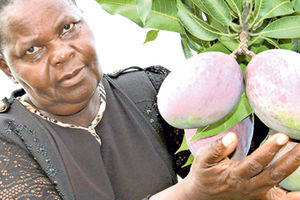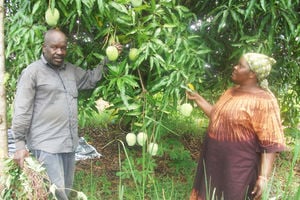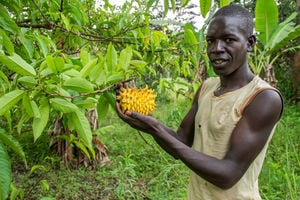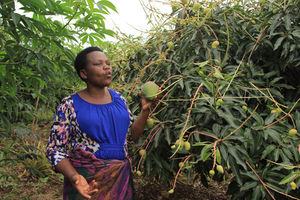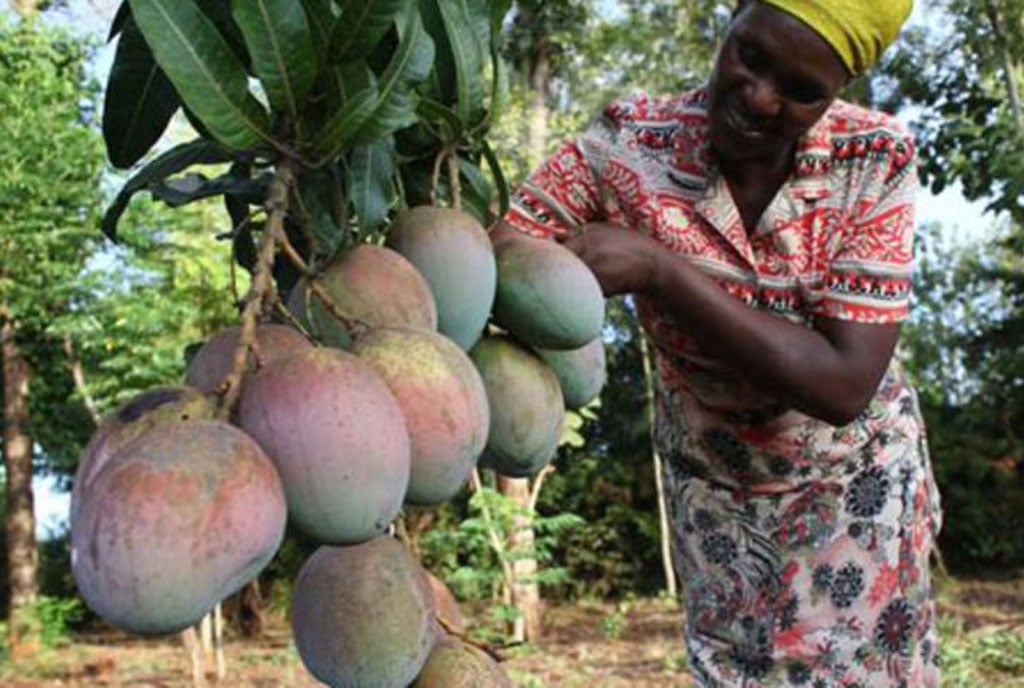
Jane Nturibi inspects her mangoes. Mango, papaya and avocado trees, among others, all usually drop their fruits prematurely, which is attributed to numerous reasons. PHOTO/FILE
Mango, papaya and avocado trees, among others, all drop fruits prematurely. While some of them drop as soon as they start fruiting, for others this happens when the fruits have started ripening.
This is a concern to many farmers based on the numerous questions we receive. In this article, I will extensively deal with mangoes, but also talk about papayas and avocados.
For mangoes, there are many factors that are responsible for the tree to shed fruits. They include dry weather or too much rain, pests, diseases and lack of fertiliser. Wrong time of fertilisation can cause the young fruits to fall off as well.
Water
Getting the right amount of water is an important factor for the growth of mango trees. Too much water can cause fruit dropping prematurely.
Note that a mature mango tree does not require frequent watering. For a young tree, water about two times a week in the first year and, thereafter, after 4-5 days.
Temperature
Mango trees grow well in warm tropical climates. A mature tree can, however, withstand low temperatures.
1. Cover the tree to protect it from frost. Do not prune dead branches if the frost continues.
2. The mango fruit may fall if there is a cold weather during bloom and fruit set. The cold damages the developing embryo in the seed leading to ethylene gas emission causing fruits to drop before maturity.
Fertiliser:
Over fertilisation or lack of it may lead to fruit fall.
1. Use a complete fertiliser developed for fruit trees, with correct ratios of nitrogen (N), phosphorous (P) and potassium (K).
Fertilise your tree with a fertiliser that has a higher P and K ratio. Too much nitrogen will damage flowers.
2. You can also give an organic fertiliser to feed the tree.
3. Regularly add organic compost to the plant.
Fruit load
Short-stemmed Apple mango variety, particularly those that set in clusters, will “push off” each other close to harvest.
Good, early season thinning, especially by reducing clustered fruits, will help prevent this type of drop.
When fruits are pushed off, they stimulate ethylene, which can cause even more pre-mature drops.
Fruit load
Short-stemmed Apple mango variety, particularly those that set in clusters, will “push off” each other close to harvest.
Good, early season thinning, especially by reducing clustered fruits, will help prevent this type of drop.
When fruits are pushed off, they stimulate ethylene, which can cause even more pre-mature drops.
For papayas, trees naturally drop fruits when flowers are not fertilised.
You would know this if the fruit produced is small, about the size of a golf ball.
There are three types of papaya flowers, male, female and hermaphrodite.
In the case of avocado, one of the major causes is spider mites.
They can be managed by avoiding excess irrigation, removal of infested tree parts from the orchard and destroying them and by use of miticides such as Dynamic, Omite and Kelthane, among others. Hass variety is commonly infested with the mites compared to the Fuerte variety.
Temperature
Mango trees grow well in warm tropical climates. A mature tree can, however, withstand low temperatures.
